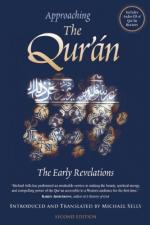|
This section contains 3,870 words (approx. 13 pages at 300 words per page) |

|
SOURCE: Carl Brockelmann, "The Arab and the Arab Empire," in History of the Islamic Peoples, translated by Joel Carmichael and Moshe Perlmann, G. P. Putnam's Sons, 1947, pp. 1-35.
In the following excerpt, Brockelmann outlines some of Muhammad's teachings as presented in the Koran, focusing primarily on the religious duties of Islamablutions, prayer, fasting, pilgrimage to Mecca, and almsgiving—which he maintains "have no inherent connection with the faith of the believer" but are rather characterized by "external legalism."
Muhammad and His Teachings
The religious enthusiast Muhammad, who felt he was a prophet and "warner" sent to his people in Mecca, developed, in Medina, into a leader of a political body, into a gifted statesman not to be deflected from his final goal, rule over Arabia, and not deterred by temporary rebuffs, such as the treaty of Hudaybiyah. His political decrees in Medina were also made public as Qur'an...
|
This section contains 3,870 words (approx. 13 pages at 300 words per page) |

|


